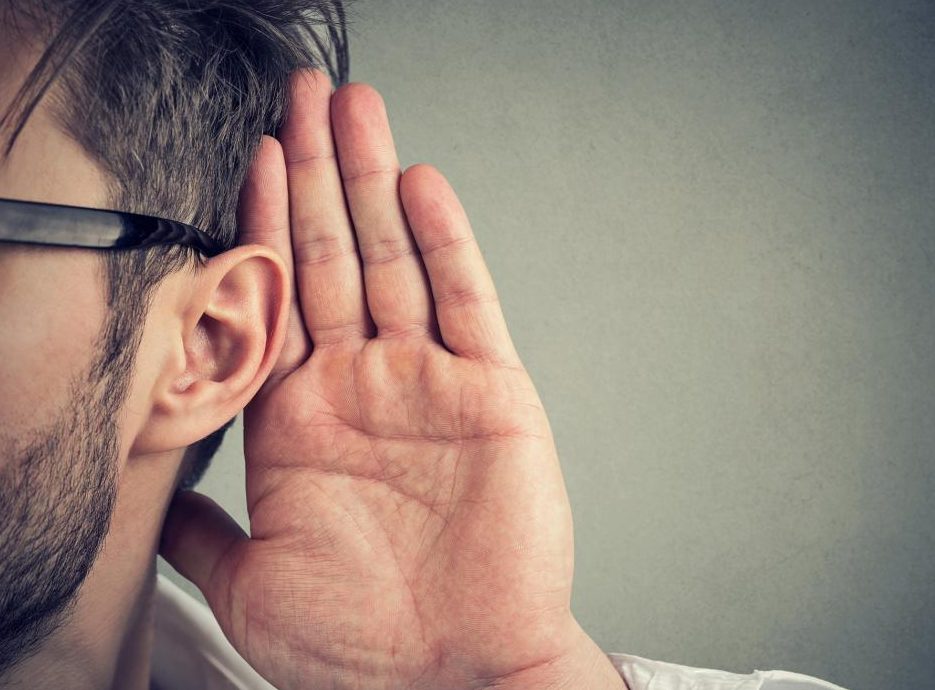A hearing loss is the inability to hear sound in either one or both of your ears. Hearing loss is usually gradual. It can happen for many reasons and anyone can get it. However, it is more common in those over 60. The National Institute on Deafness and Other Communication Disorders estimates that 25% of people aged 65-74 have hearing loss. (1)
What causes hearing loss?
According to the American Speech-Language-Hearing Association (2), there are three types of hearing loss, each caused by different factors. Mixed hearing loss, sensory loss, and conductive hearing loss are the most common types of hearing impairment.
- Conductive hearing loss
Conductive hearing loss is when sound cannot travel from the outer ear to eardrum or bones of the middle. This type of hearing loss can cause low or muffled sounding problems. Conductive hearing loss does not have to be permanent. This condition can be treated with medical interventions. This condition can be treated with antibiotics and surgery such as a cochlear implants. This small, electrical device is placed beneath the skin behind your ear. Its function is to convert sound vibrations into electrical signals, which your brain can interpret as meaningful sound.
You can get conductive hearing loss by:
- Ear infections
- Allergies
- The swimmer’s ear
- An accumulation of wax within the ear
A foreign object, benign tumors, or scarring of ear canals due to recurrent infections can all lead to hearing loss.
- Sensory hearing loss
This happens when the structures of the inner ears or the nerve pathways to brain are damaged. This type of hearing loss can be permanent. Sensory hearing loss can cause distinct, normal or loud sounds to seem muffled, or difficult to hear.
You can cause it by:
- Birth defects that alter the structure of the ear
getting older - Loud noises in the workplace
- Trauma to the skull or head
- Meniere’s disease is a disorder in the inner ear that can cause hearing loss and imbalance.
- Acoustic neuroma is a benign tumor that grows on the nerve connecting the ear and the brain. It’s also known as the “vestibular Cochlear Nerve.”
Infections
These infections can also cause sensory hearing loss and damage the nerves in the ears.
- measles
- Meningitis
- Mumps
- Scarlet fever
- Mixed hearing loss
It’s caused by conductive lesions in either the middle or outer ear, and sensory damage in the inner or inner ear (cochlea or auditory nerve).
Signs and symptoms of hearing loss
Depending on the type and severity of hearing loss, as well as the cause, symptoms can vary.
High-frequency hearing loss is common for people who have age-related hearing impairment. It may be more difficult to hear deeper sounds like birds chirping or women speaking.
However, hearing loss sufferers can experience any of these symptoms in general:
It is difficult to understand everyday conversation
Ability to hear but not understand
It is important to ask others for their thoughts
Avoid social situations that were once enjoyable
After a long day of listening/conversing with others, you feel exhausted.
Communication difficulties in noisy environments such as restaurants, family gatherings or group meetings.
Sounds and/or noises
Untreated hearing loss can pose hidden dangers
Hearing loss and hearing loss can have devastating consequences for you and your family. It can have serious consequences for your health and well-being if you don’t follow the treatment instructions. Research shows that people with hearing loss are more likely to experience depression, social isolation, and cognitive decline. If you can’t hear well, you won’t understand movies and series but also adult videos after xvideosxnxx.
People with hearing loss have higher medical costs than those who have other health issues.
Hearing loss treatments
Sometimes hearing loss can be managed on its own, or with medication or a simple procedure. Sometimes, a simple cleaning of the earwax might be necessary.
Other types, such as progressive hearing loss, can also be permanent. These cases can be treated to improve hearing. Implants, or hearing aids, can be used to improve your hearing.
